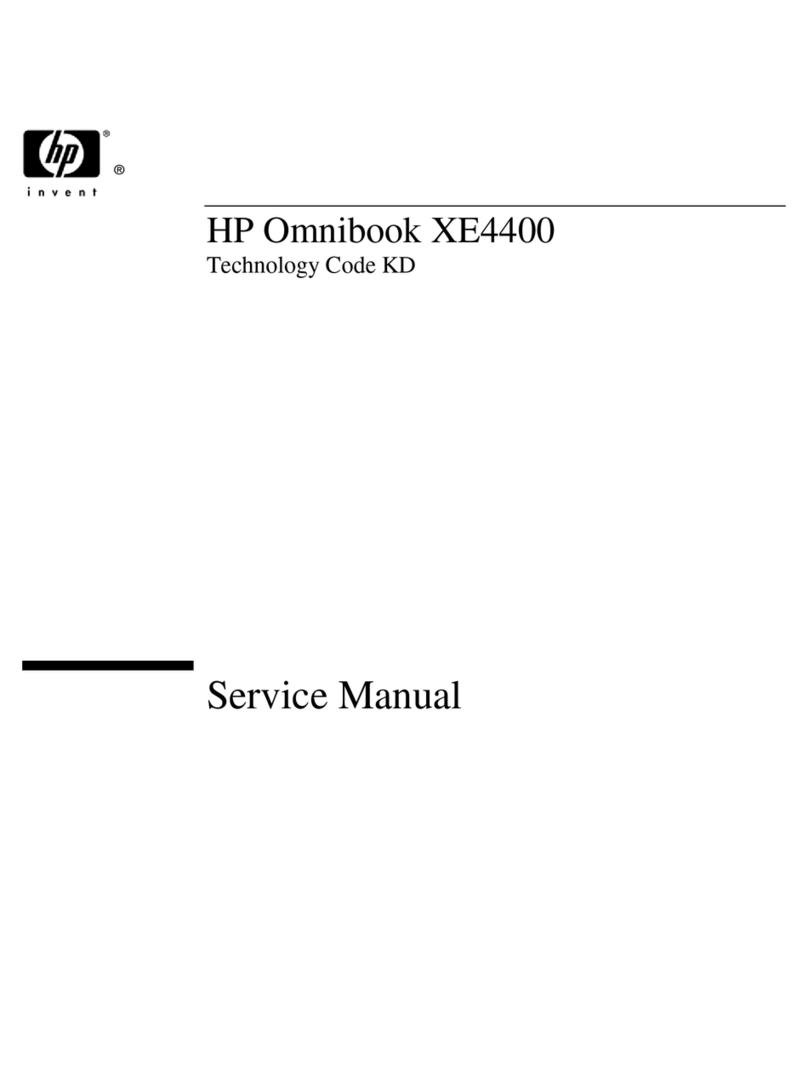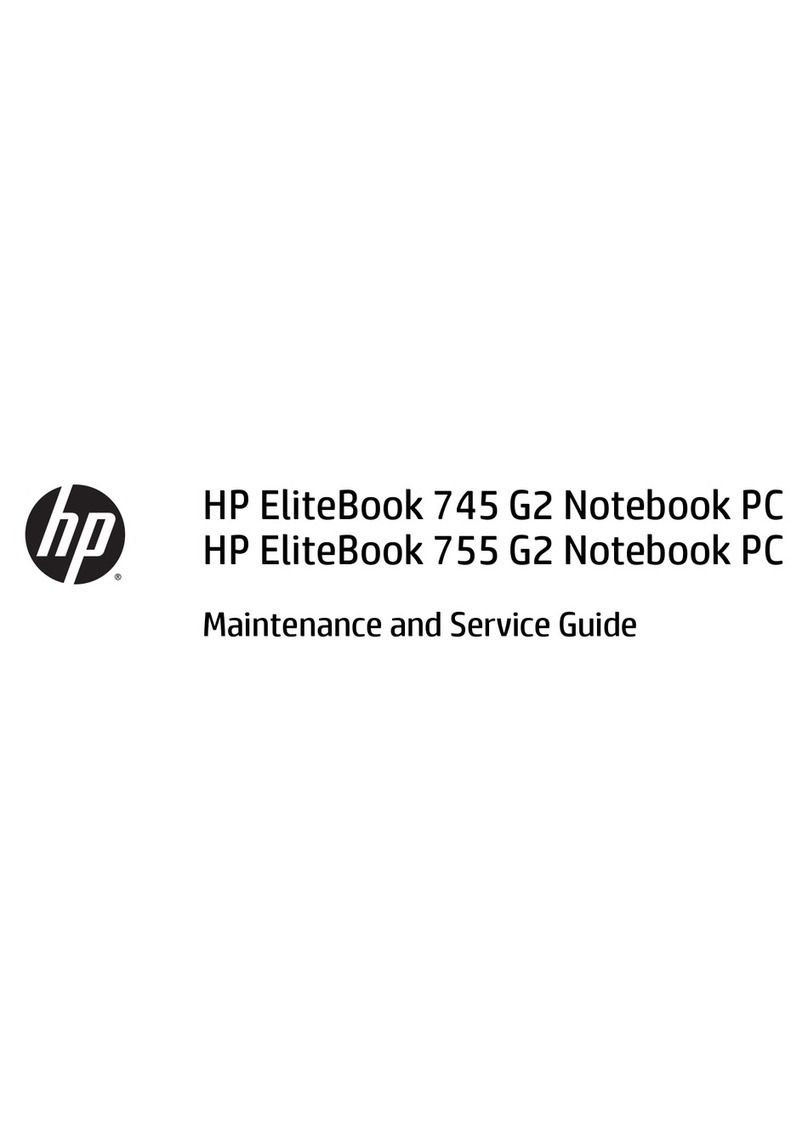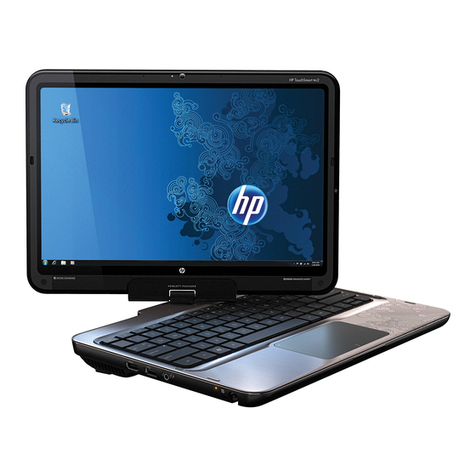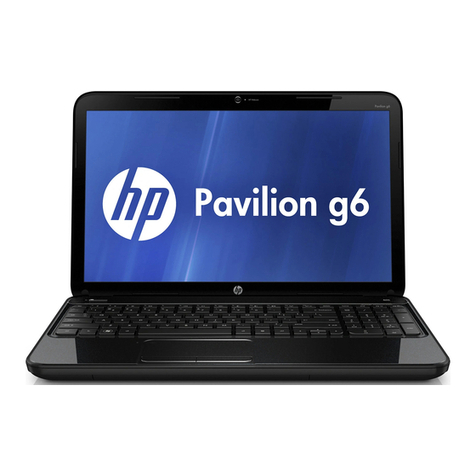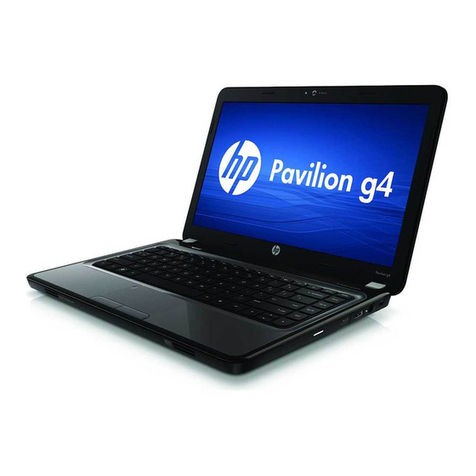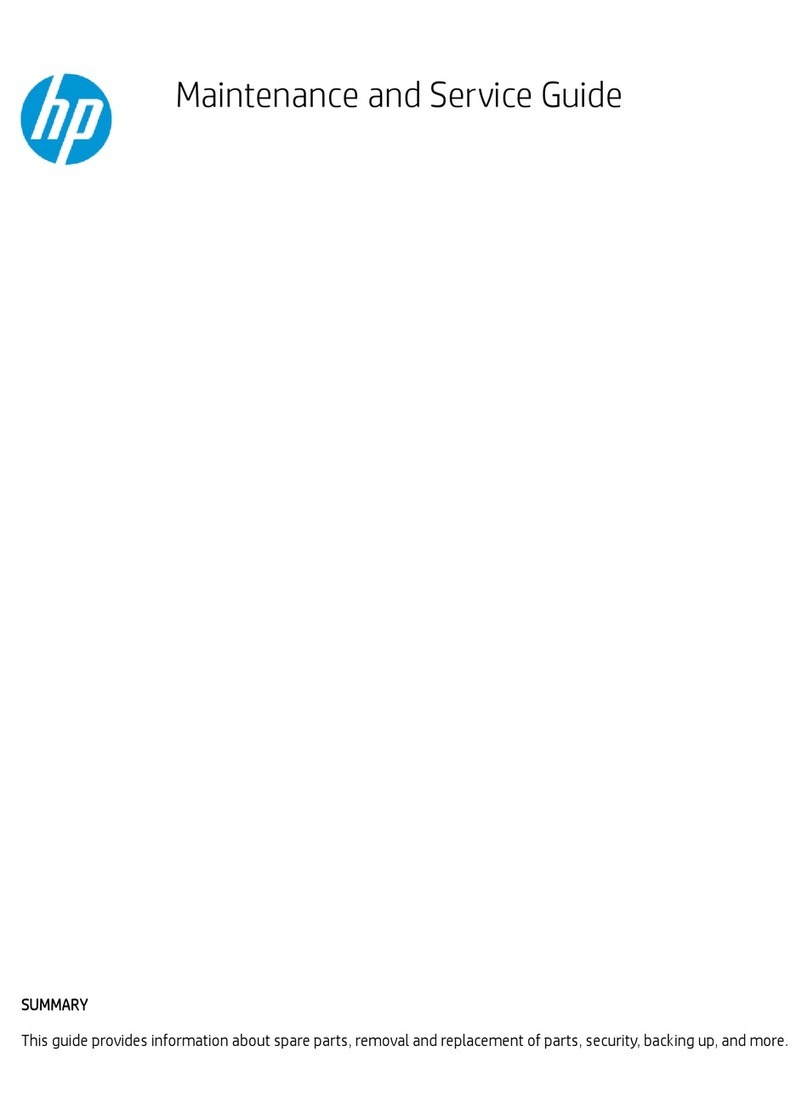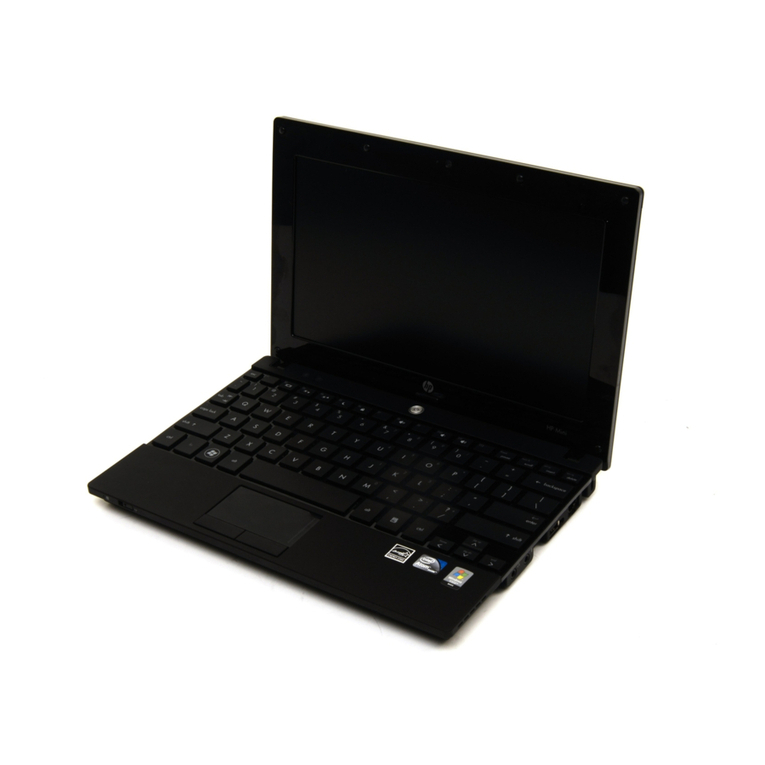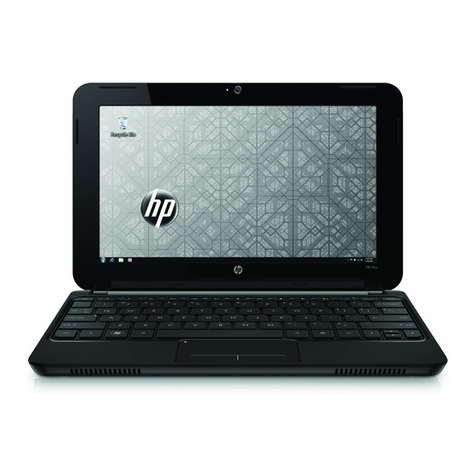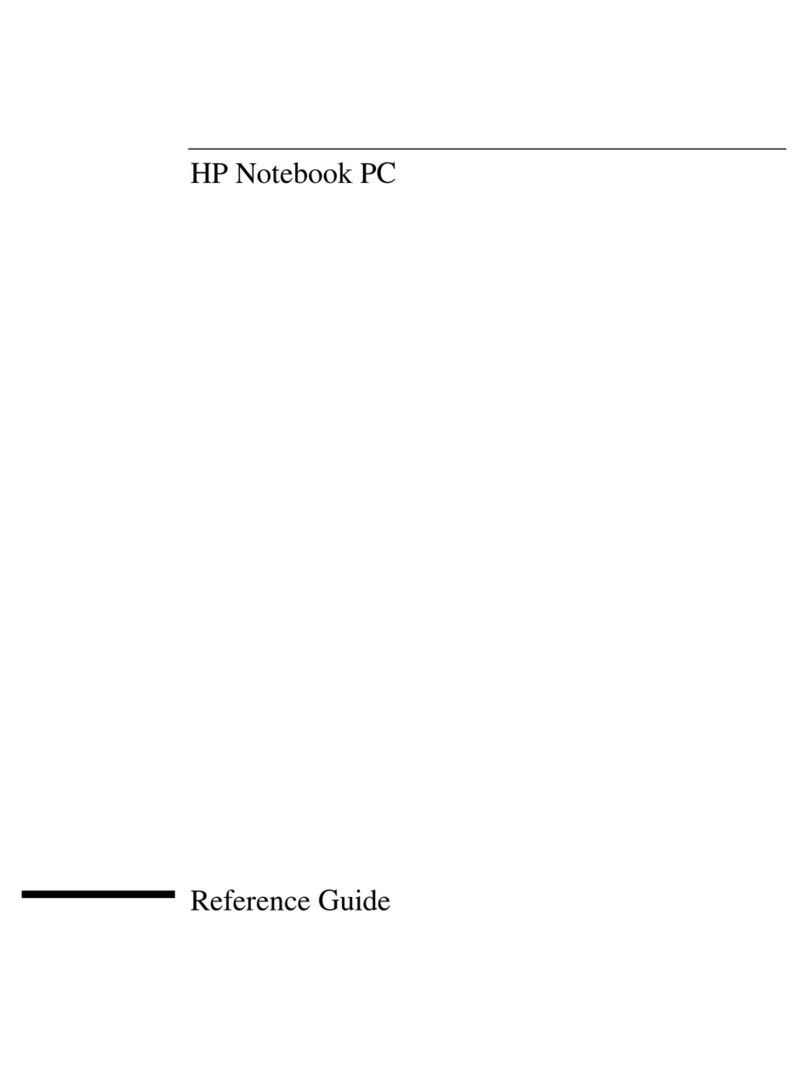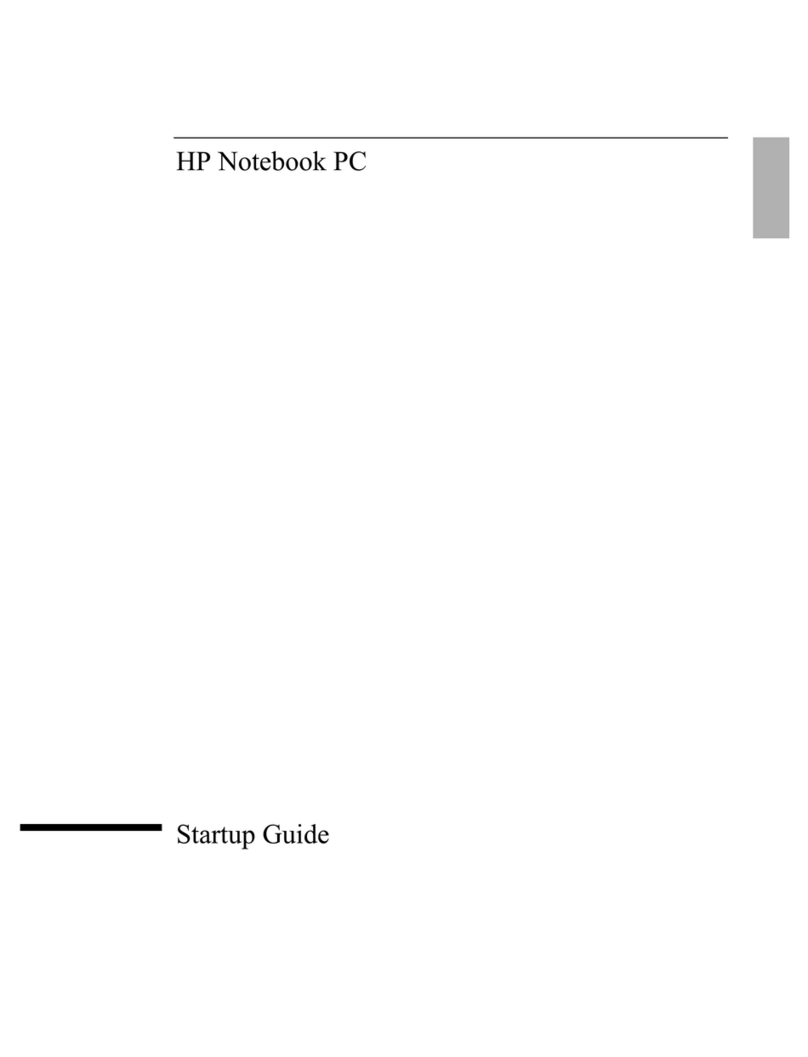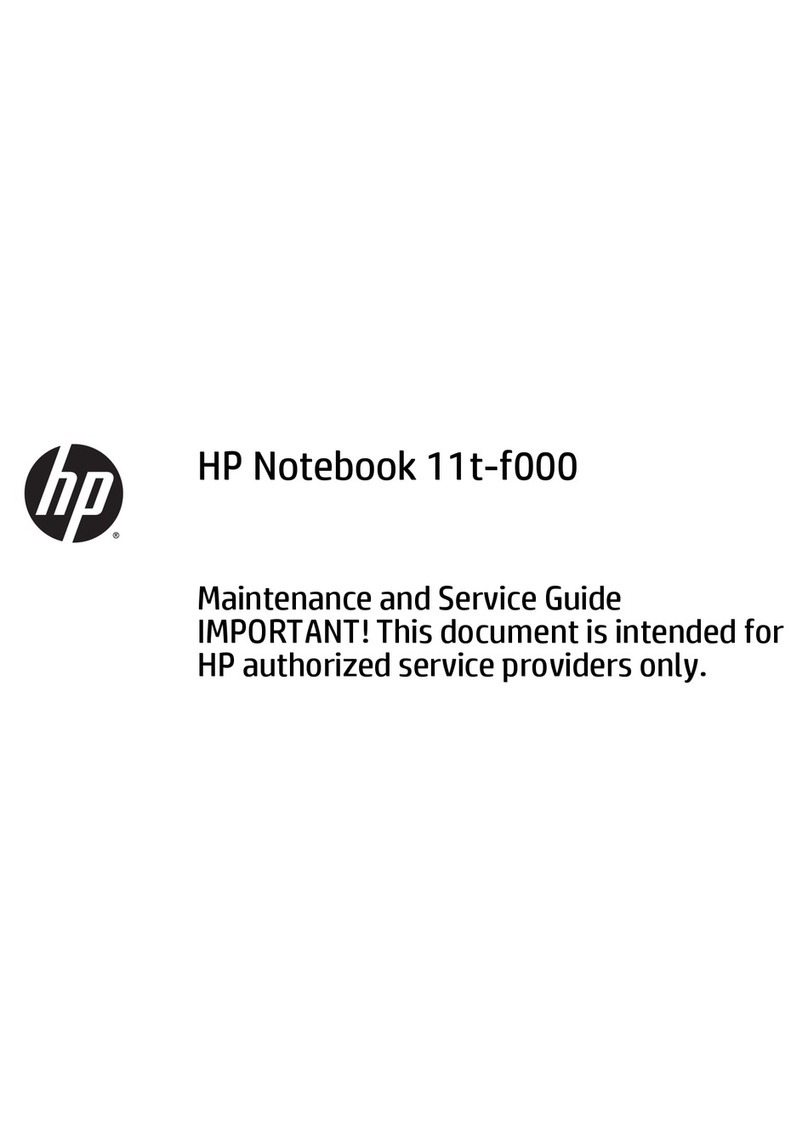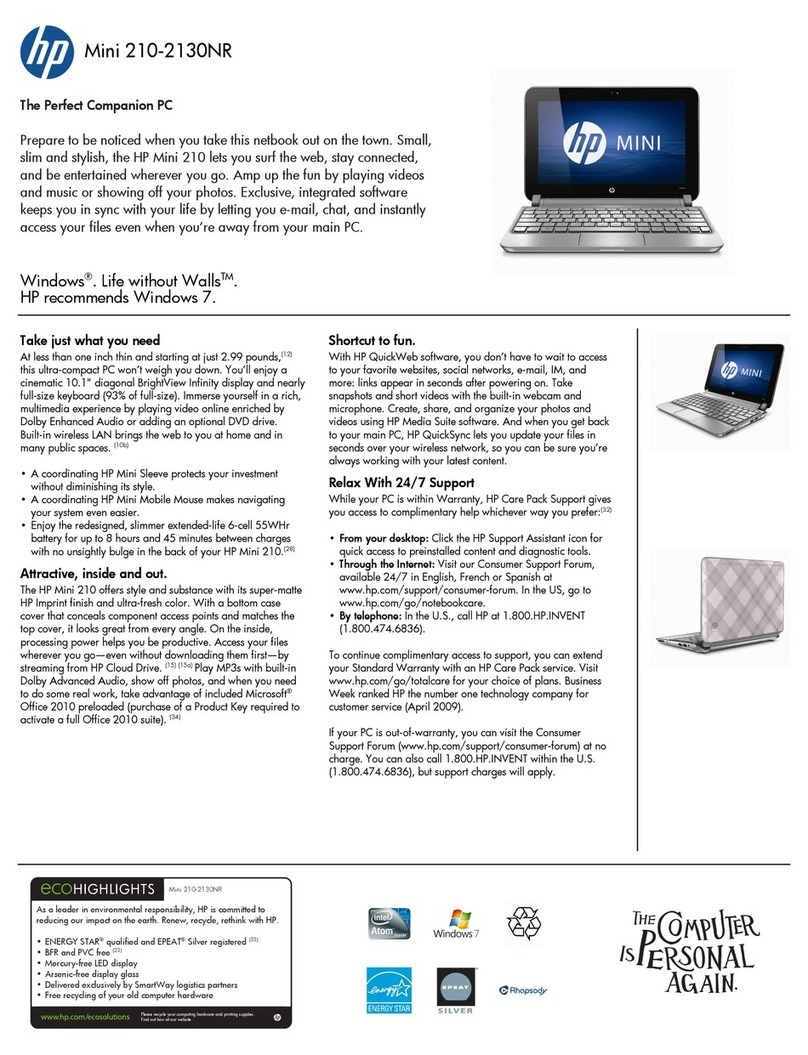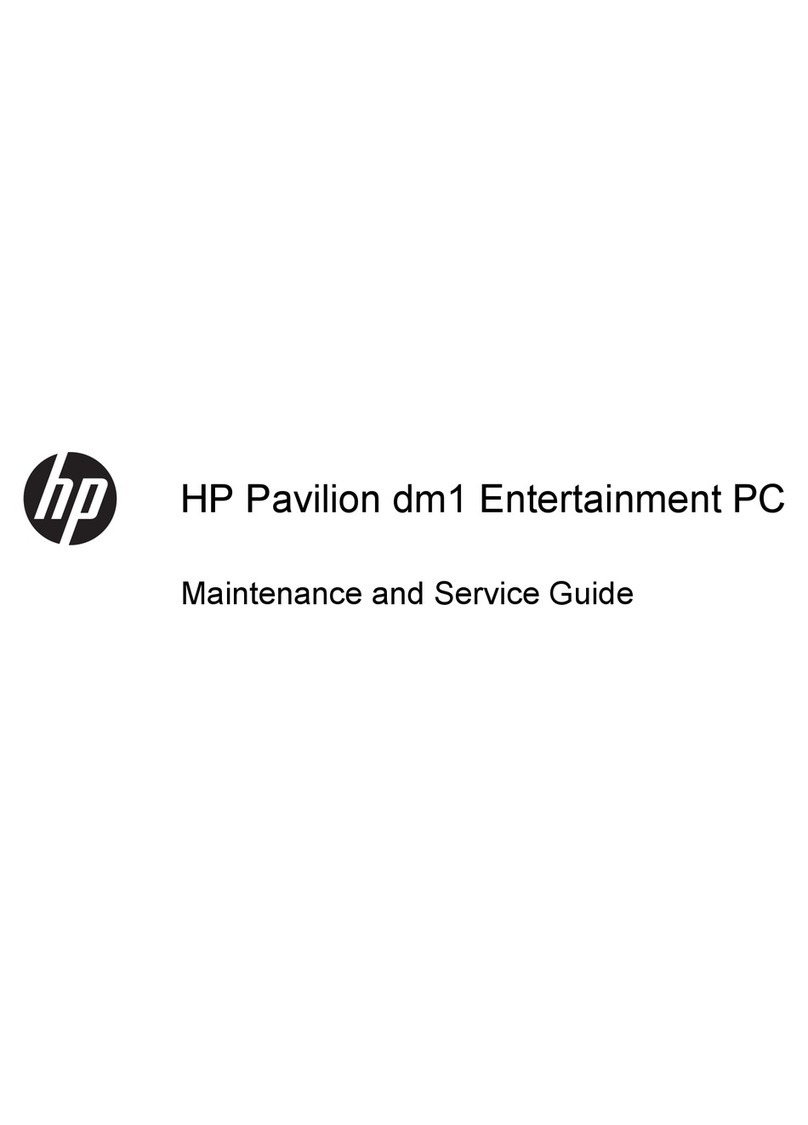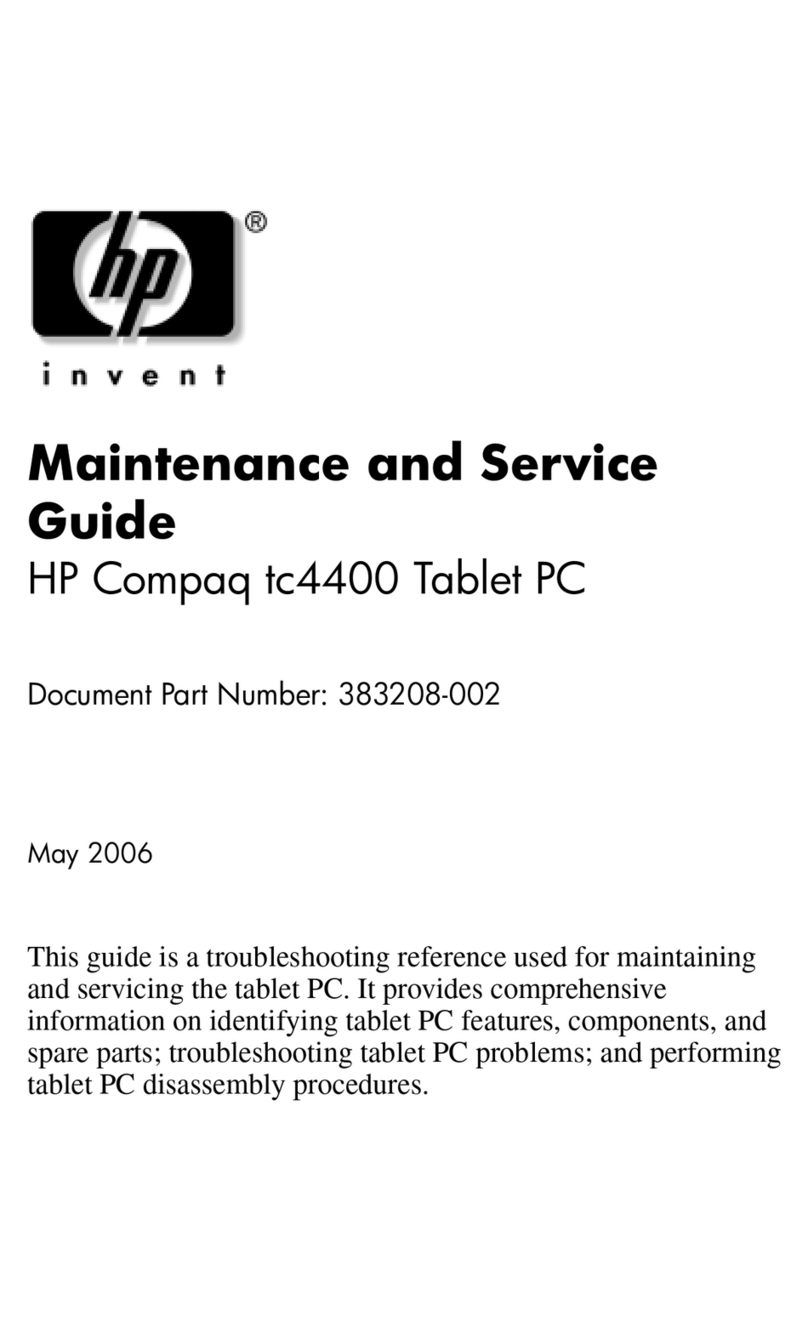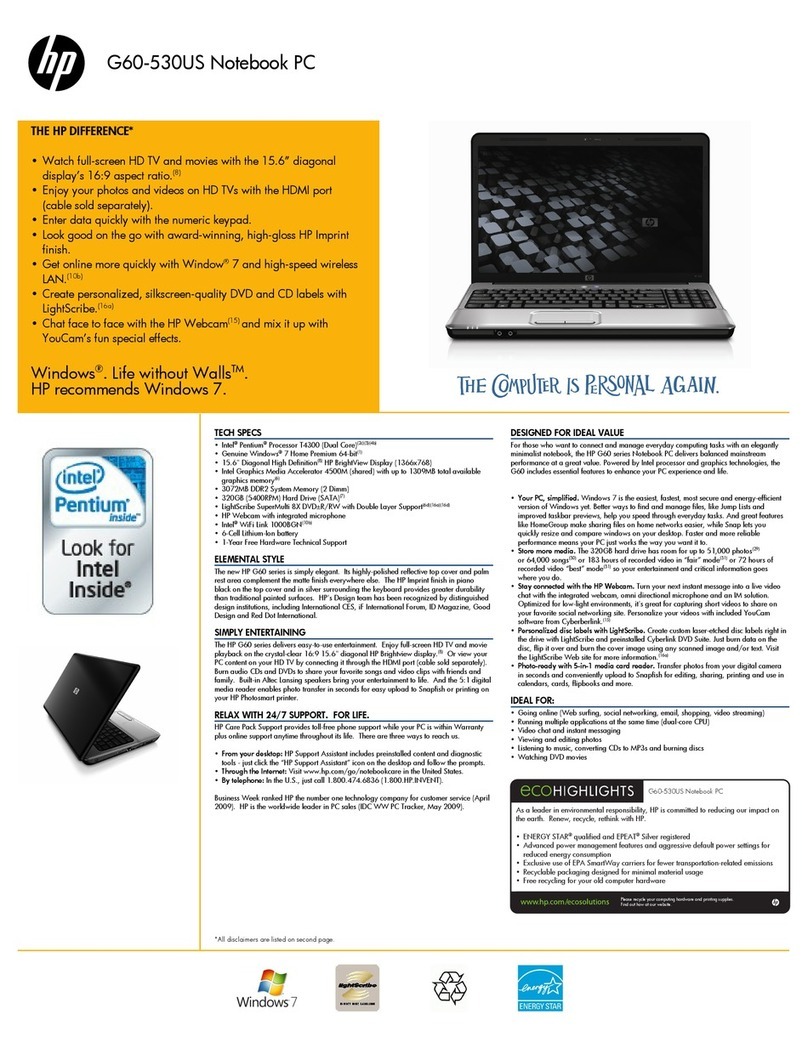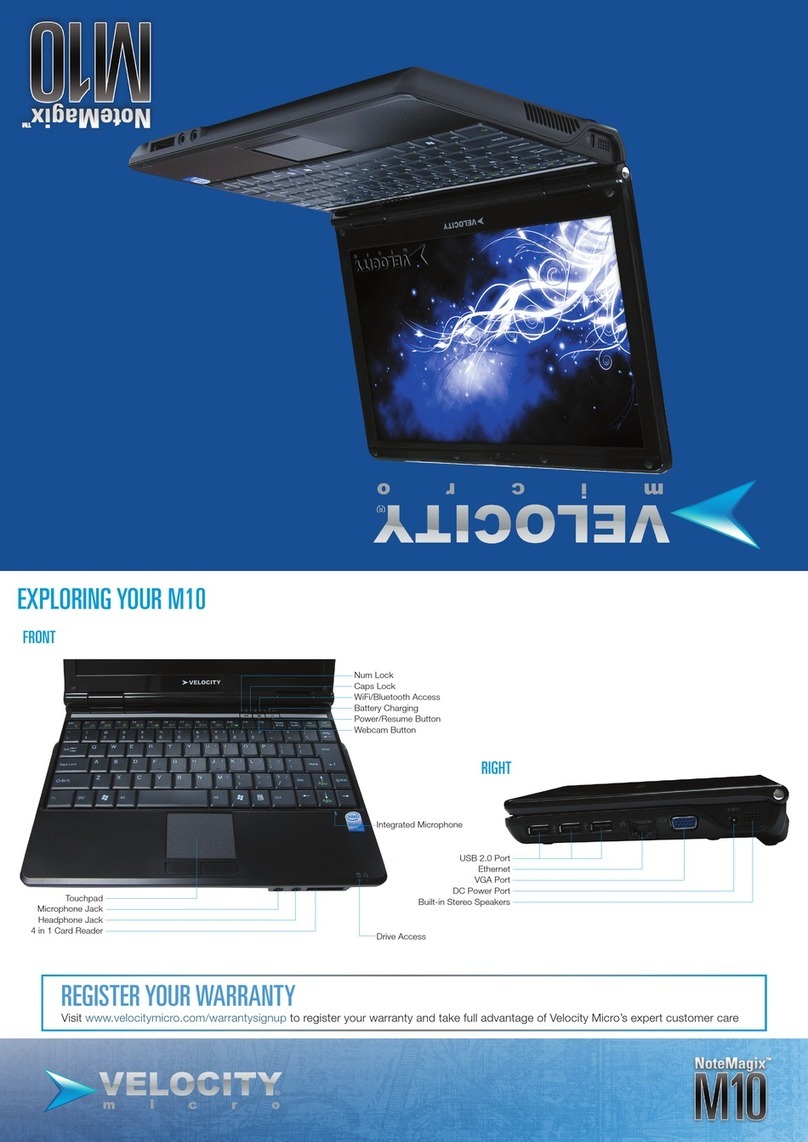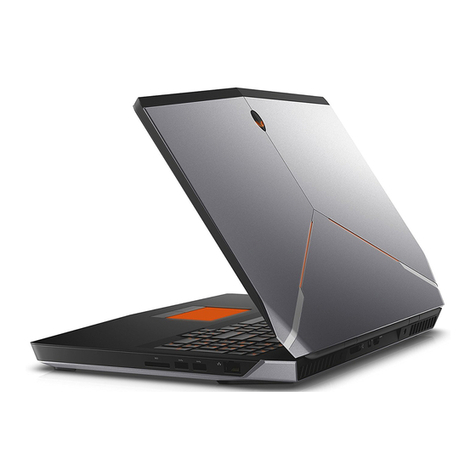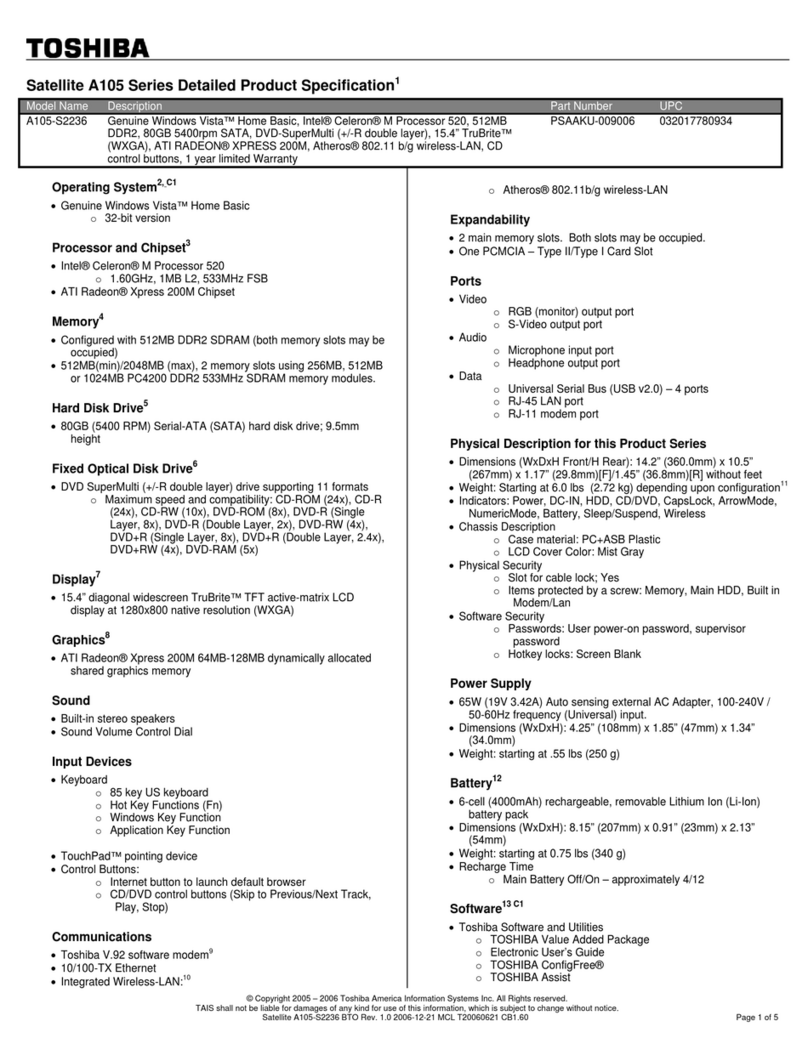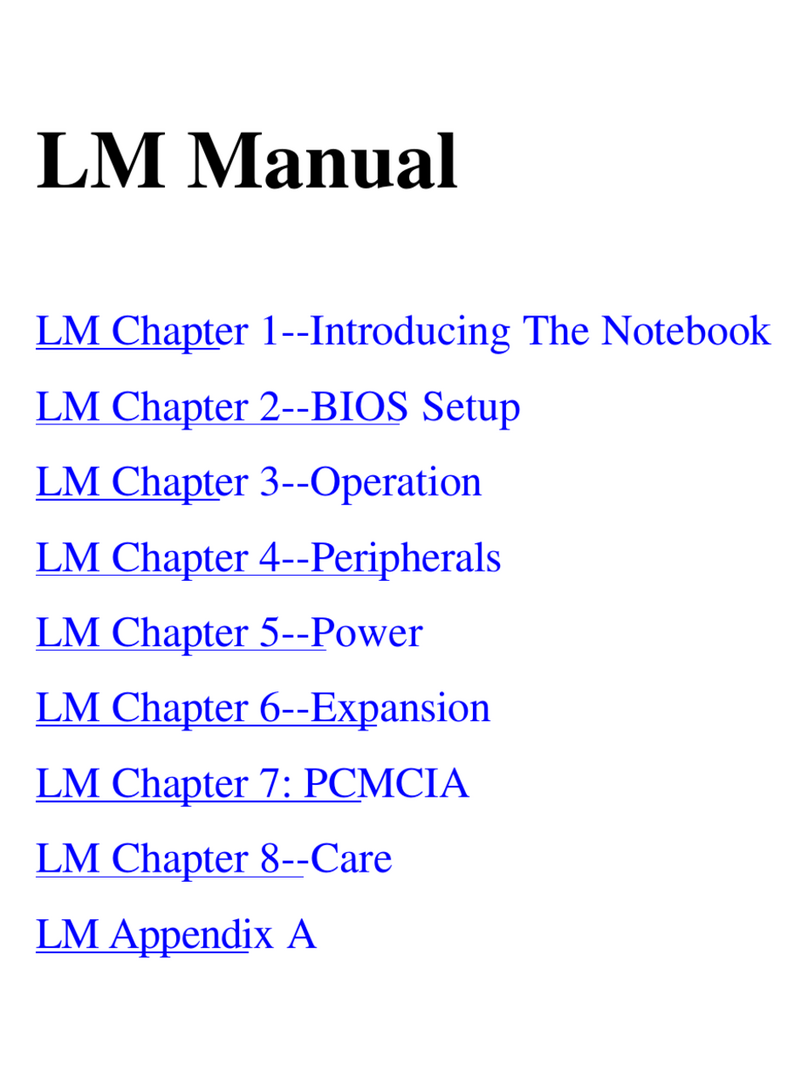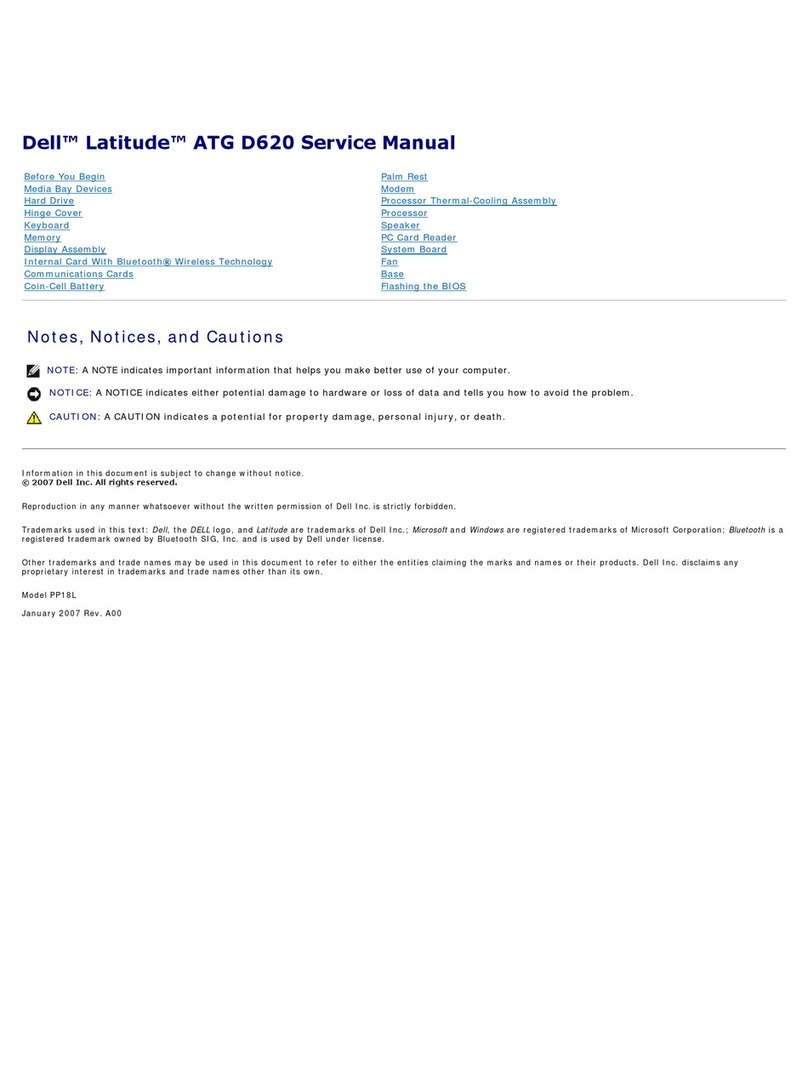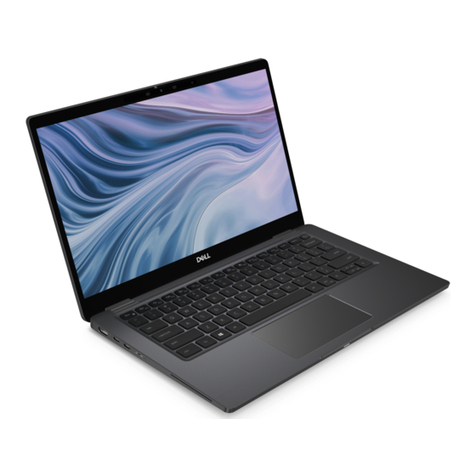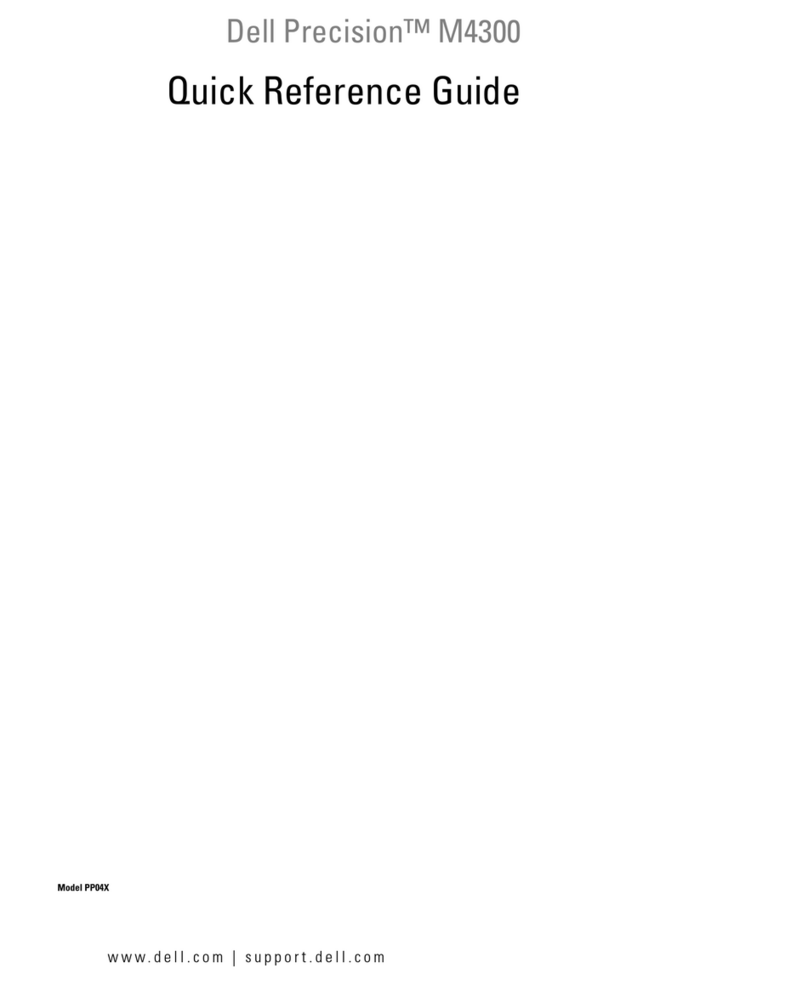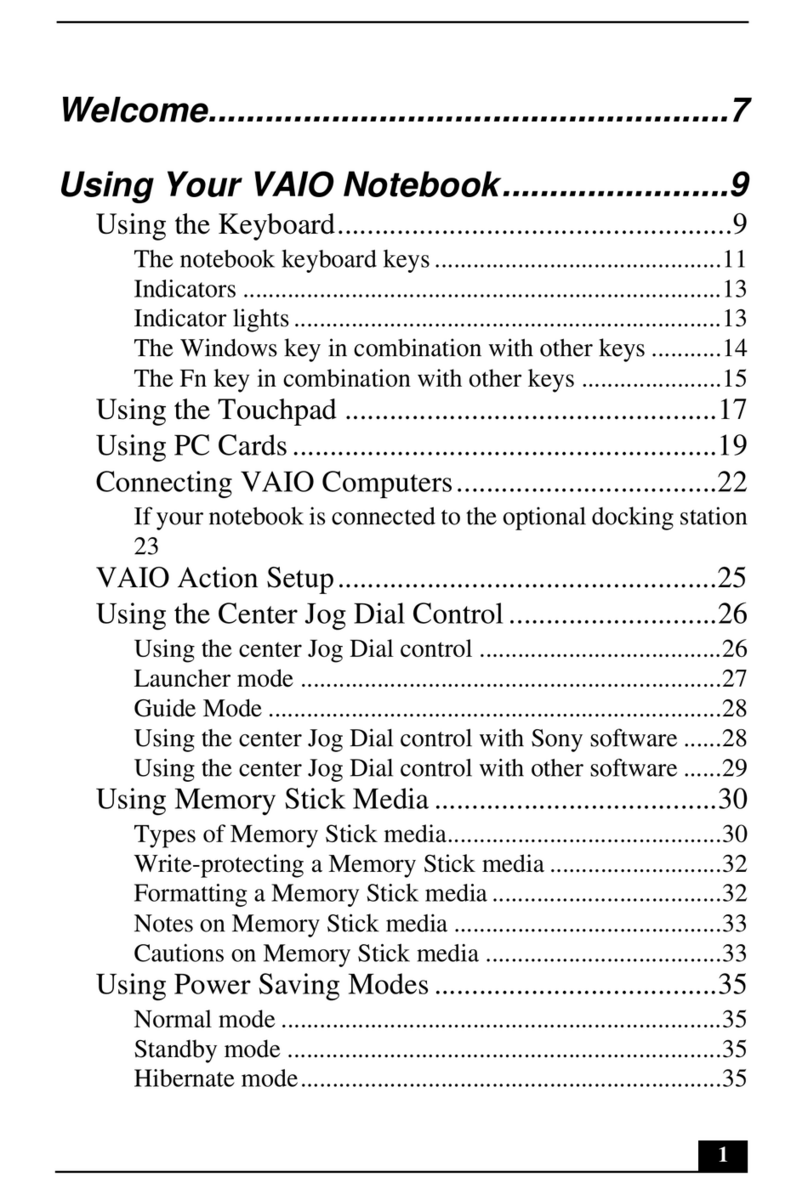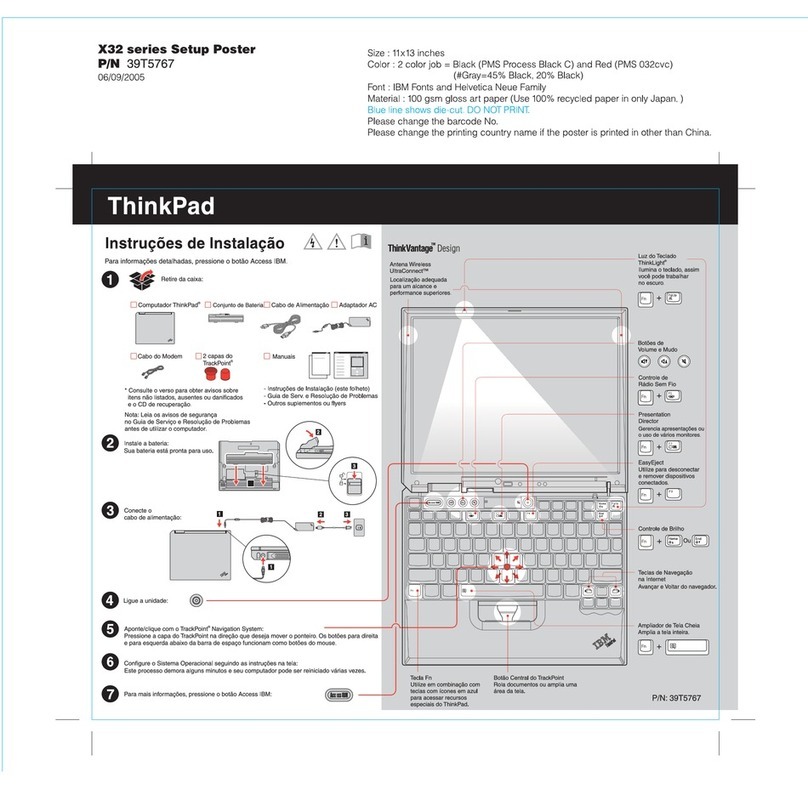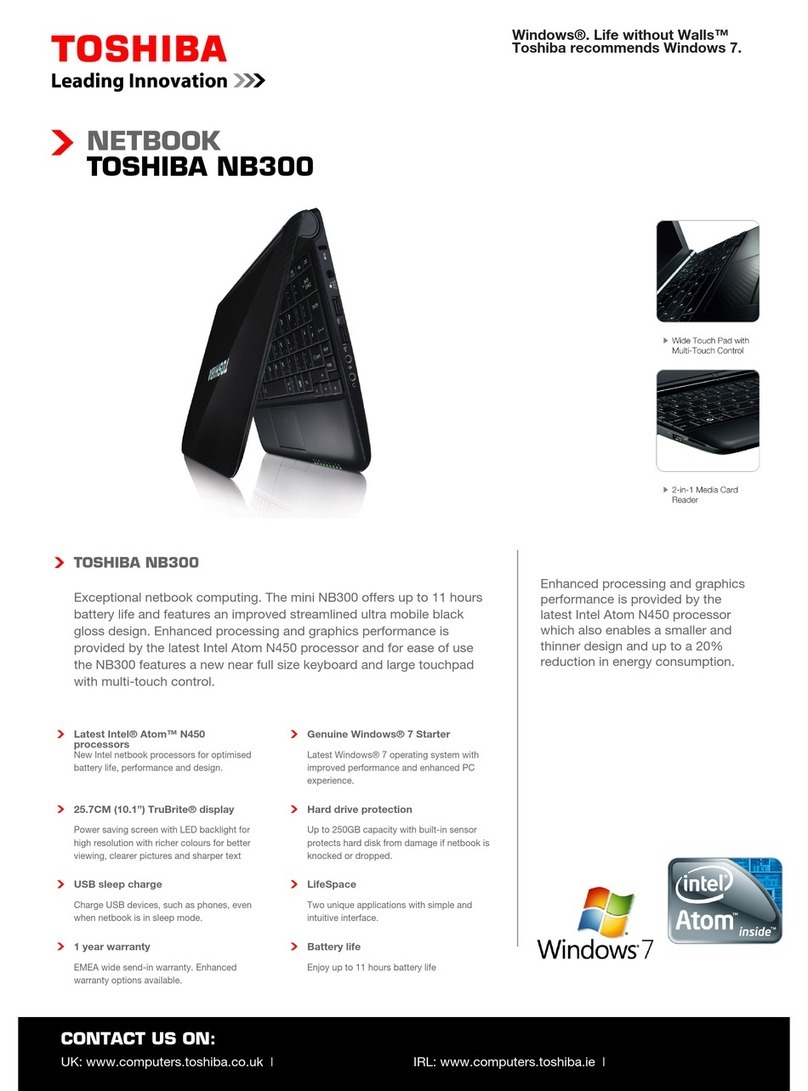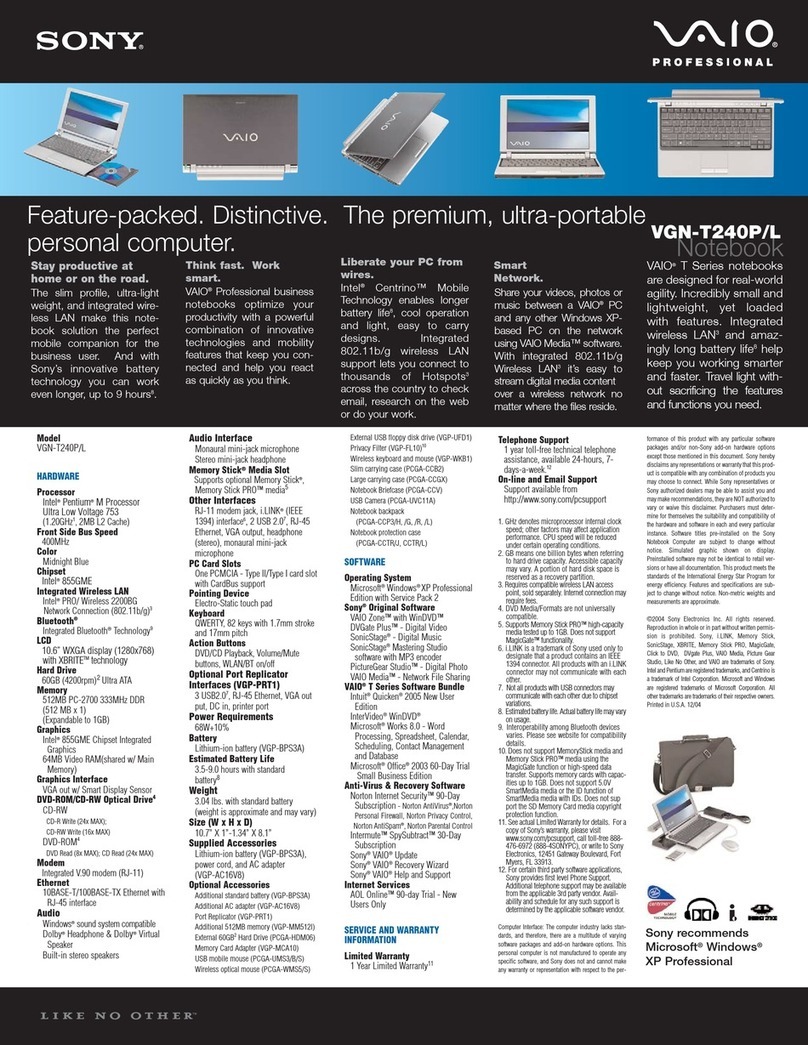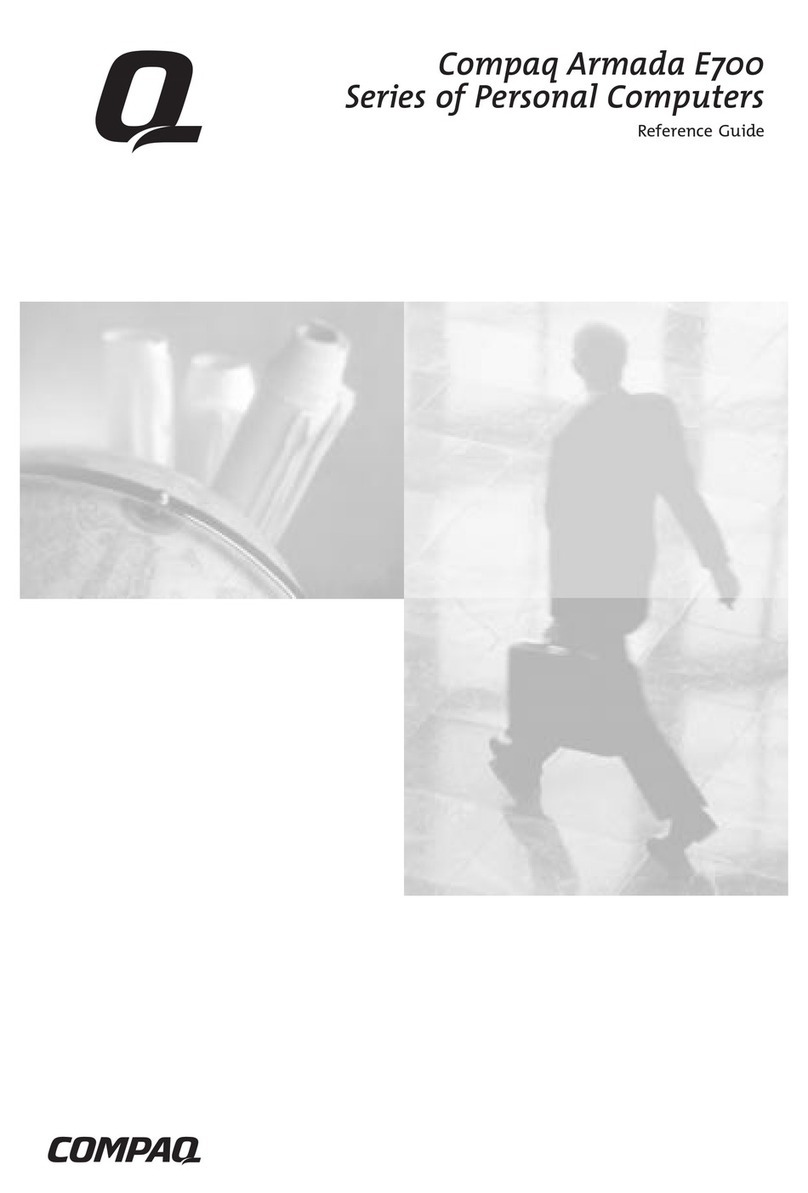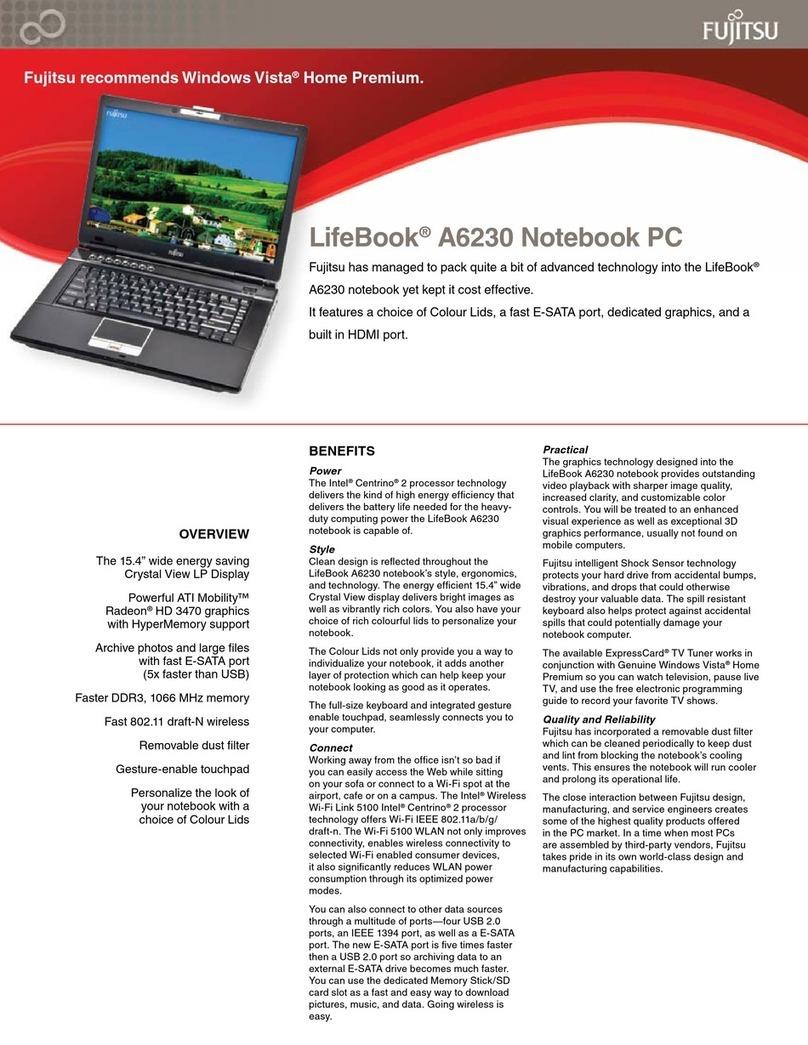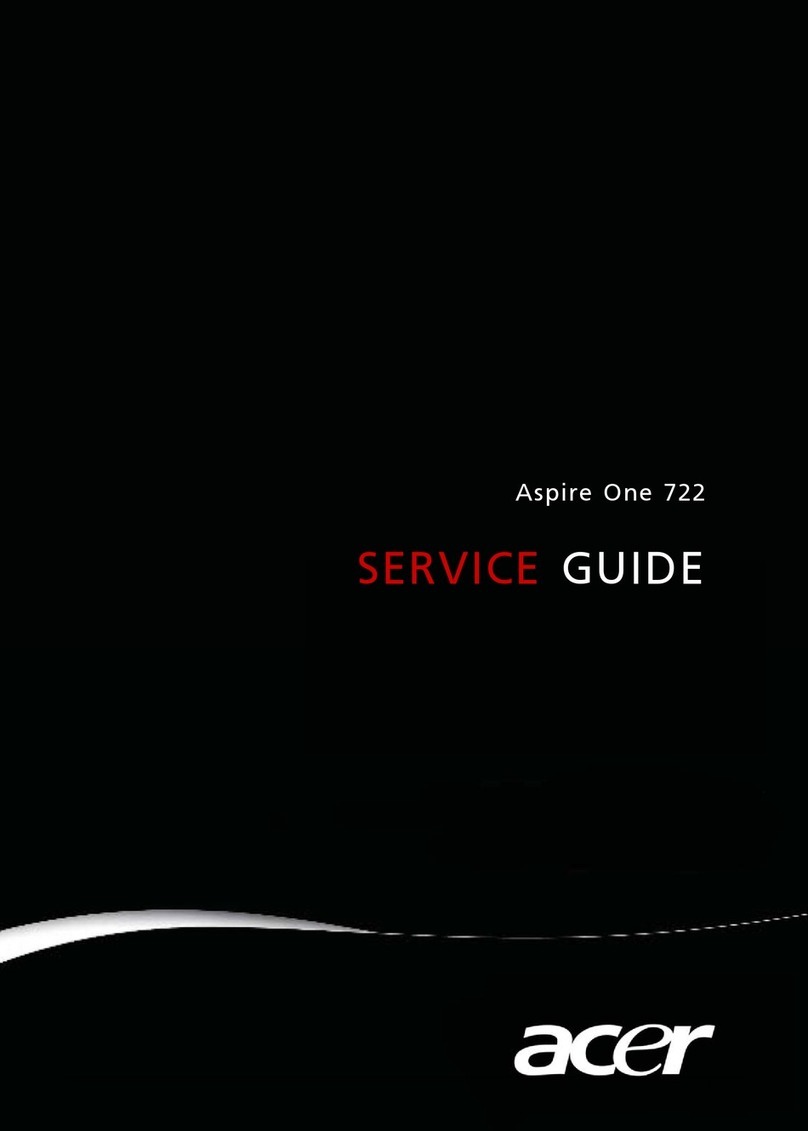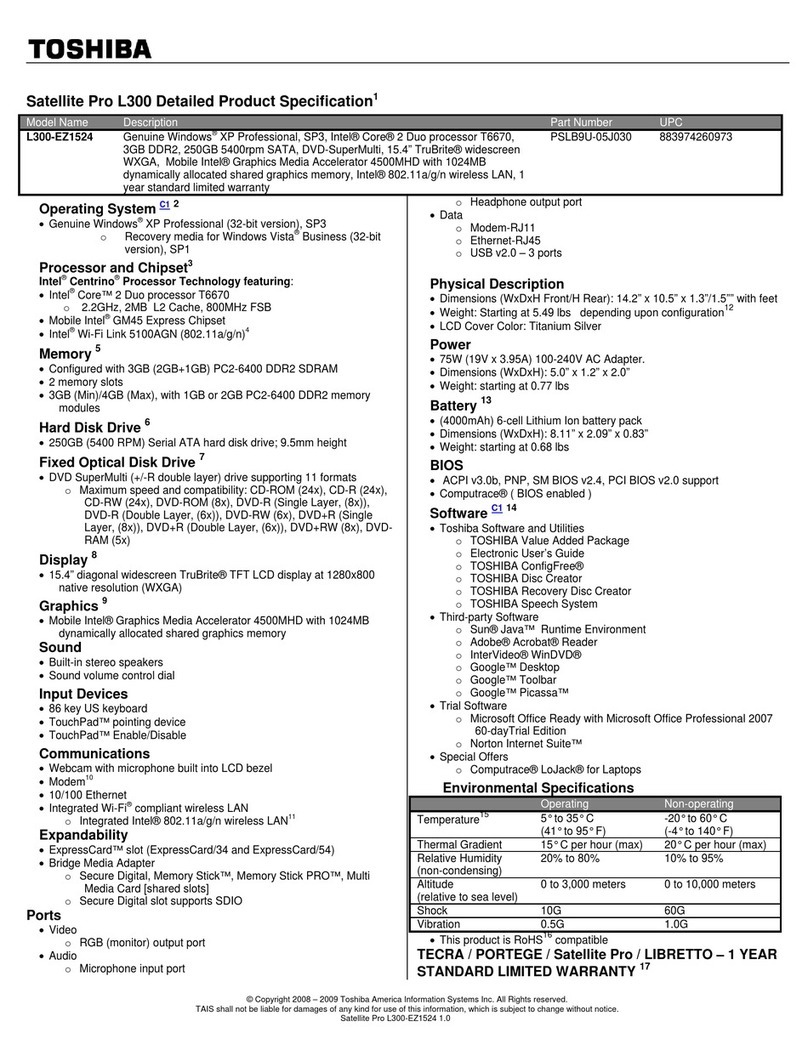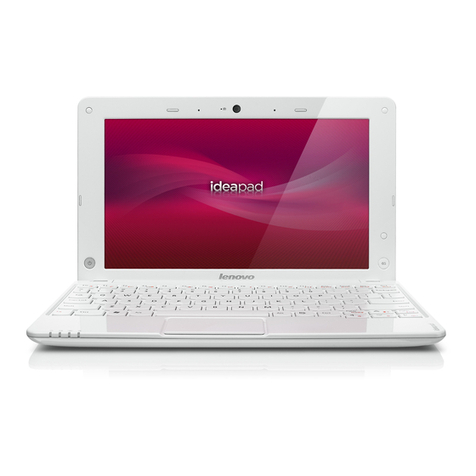
Brunswick City Schools 2009 HP6830s Laptop
4
•Store Li-Ion batteries between 20°C and 25°C (68°F and 77°F) with 30% to 50% charge.
Caring for the Your Laptop Battery
These suggesting are HP’s recommendations to maximize the life of your battery. There are actions you
can take to make your battery last longer during each charge cycle and live longer over many cycles.
Battery cells suffer gradual, irreversible capacity loss over time. Such aging occurs more rapidly as
temperature and discharge loads increase. Here are some suggested ways to minimize the capacity loss
for your battery.
•Do not leave batteries exposed to high temperatures for extended periods. Prolonged exposure
to heat (for example, inside a hot car) will accelerate the deterioration of Li-Ion cells.
•Remove the battery if the notebook will be stored (turned off and not plugged into AC power)
for more than 2 weeks.
•Remove the battery if the notebook will be plugged into AC power continuously (via a wall
adapter or docking station) for more than 2 weeks.
•Reduce the brightness of the screen to the minimum readable level. Use the Fn and F7 or F8
keys to adjust the brightness.
Tips for conserving battery power on notebook PCs
You can manually change the power consumption of your notebook PC and conserve battery power.
•Remove peripherals when not in use. External hard drives, CD-ROMs, Zip drives, PC cards, and
other peripheral devices can draw power from your battery even when they are not in active
use. Disconnect them when you have finished using them.
•Reduce the speed of your processor. The faster your computer works, the more quickly it uses
up the supply of power. By cutting down on processor speed, you can extend the charge of
your battery. Methods to reduce processor speed vary from model to model, and your manual
should provide instructions for doing so.
•Turn off the Wireless On-Off button when it is not in use. If your notebook has one, press the
Wireless On-Off button so that the light turns off.
•DO NOT leave your laptop in a car overnight in the winter. This could cause serious damage.
